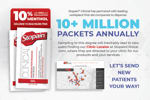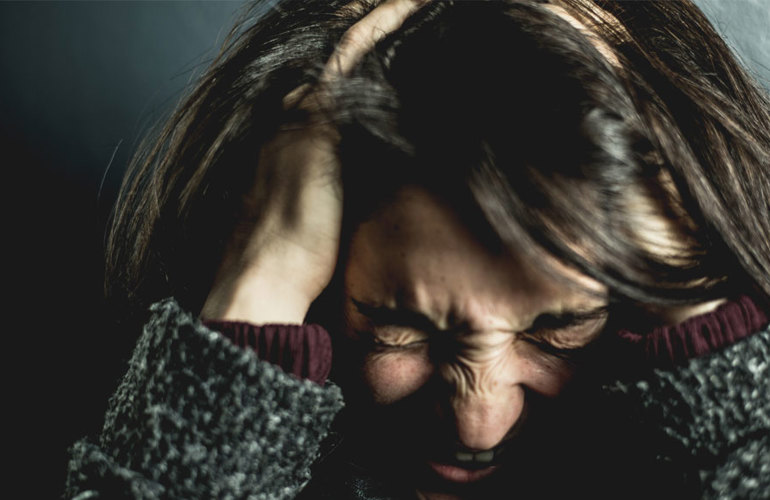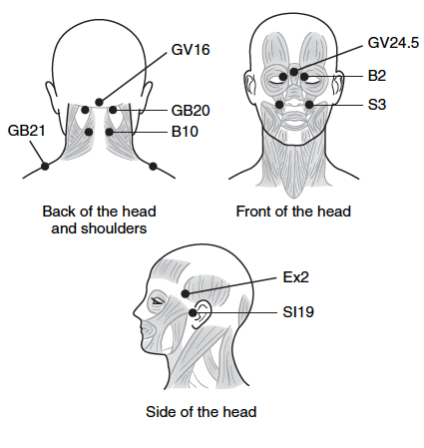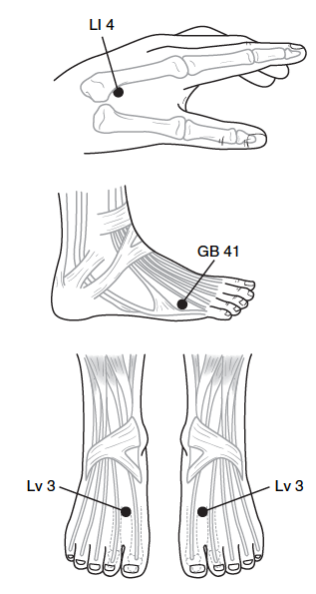
The Power of Menthol: Why I...
VIEW >

Chiropractor’s Guide to Inc...
VIEW >

Not yet a Pro Portal member? Sign up here.
Chiropractors, Physical Therapists, Massage Therapists and other Hands-On Healthcare Professionals are an essential health and wellness resource for individuals of all ages. We partner closely with these professionals on helping people perform better and move ‘pain-free’.
Our topical pain relief products were specifically formulated with these hands-on healthcare professionals (and their patients) in mind. Our fast-acting formulation with penetration enhancers plus 10% menthol, MSM, Glucosamine is like no other. Embracing hands-on healthcare professionals and topical pain relief solutions like Stopain® Clinical provides patients and their families with the ultimate wellness solution.
Visit our clinic locator to find a healthcare professional in your community.

Migraine headaches are a debilitating, referred-pain headache that produces throbbing pain that may last for a few days. They are frequently felt in the forehead and face, around the eyes, in the sinus, by the jaw, the temples, or the back of head and neck area. The factors that may contribute to a migraine are diet, unchecked stress, too much computer time, nicotine, bright lights and florescent lights, and missing a meal or a sleep cycle. The dietary factors that may trigger migraines include nuts, pickled foods, chocolate, cheese, excessive alcohol, MSG, and caffeine. There appears to be a strong familial link for those who suffer migraines. Many people who experience migraine headaches experience an aura or warning sign that one is on the way from 20 minutes to an hour before an attack. Flashing lights, spots, wavy lines, and blind spots are some of the typical ways an aura is described.
STRATEGIES TO REDUCE MIGRAINES:
DIET, ENVIRONMENT, AND EXERCISE
Eliminate the foods, beverages, and if possible, the environmental factors that contribute to headaches. Also try to reduce computer screen time. If that isn’t possible, get up and stretch the neck, shoulders, arms, and upper back and do a few eye-muscle mobilizing exercises every 20–30 minutes. Push away from the computer, stand up and move around, and take a break.
AUTOGENIC TRAINING/DEEP RELAXATION
The pain from migraines is caused by swollen blood vessels of the brain. For this reason, migraines are also referred to as vascular (blood-vessel) headaches. The excess blood causes pressure against the meninges (membranes that cover the brain), which produces migraine pain. Autogenic training, a relaxation technique that uses passive suggestions of warmth and heaviness to increase the blood flow to the distal extremities and the fingers and toes, has proven useful in combating migraines. When the client experiences an aura of a migraine, they should use autogenic training before the headache becomes debilitating. Learning to bring more blood to the hands and feet at will may reduce the engorgement of the arteries in the brain and help the client naturally eliminate their headaches. If your client does not receive signs that a migraine is on the way, ask them to check the temperature of their hands and feet the next time they have one. If they experience cold, suggest that they sit or lie down in a quiet comfortable place, take some long, slow, deep breaths, relax, and use the following autogenic suggestions to passively tell their hands and feet to warm up.
Sample autogenic suggestions:
GET A GOOD NIGHT’S SLEEP
Try to get 6–8 hours of sleep each night. Avoid caffeine after the morning and foods that upset digestion. Try to get some exercise each day. Whenever possible, have a consistent bedtime and avoid vigorous exercise and intellectually stimulating activities before bed.
SELF-MASSAGE USING STOPAIN CLINICAL MIGRAINE & HEADACHE RELIEF
Open the packet, dispense it onto the fingertips, and massage it into the back of the neck and the base of the skull from the foramen magnum area out to the mastoid processes. Also apply cross-fiber friction to the cervical paraspinal muscles from the sides of the spinous processes laterally. Please note: Do not apply topicals to the forehead and temples because they may irritate the eyes.
MASSAGE THE HEADACHE RELIEF POINTS
Massage all the headache relief points listed below with firm but not painful pressure for 60 seconds each. Stopain Clinical Migraine & Headache topical gel can be applied to all the points not on the face or side of the head.
Headache Relief Points


REFERENCES
Forman, Jeffrey. (2007) Managing Physical Stress with Therapeutic Massage. Clifton Park, New York: Cengage Learning
Jeffrey Forman, PhD, author of Managing Physical Stress with Therapeutic Massage.
Jeffrey Forman, PhD, BCTMB